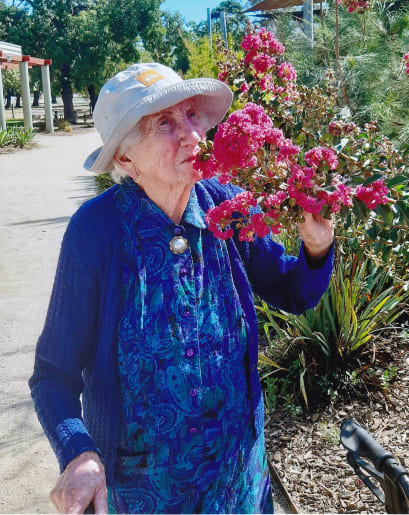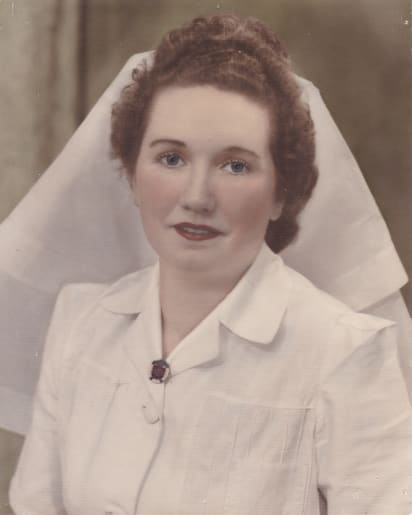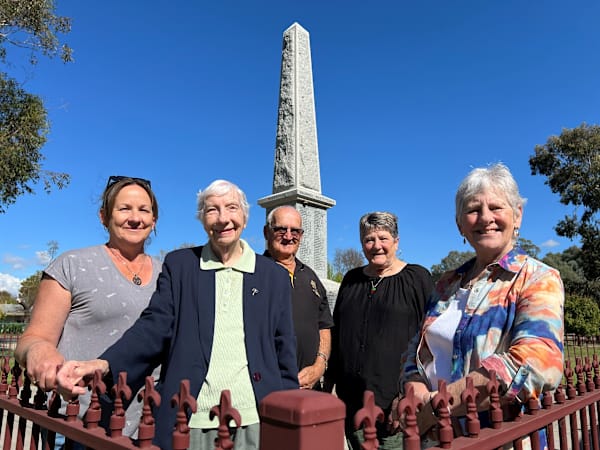A 101-year-old former Wangaratta hospital nurse, who treated several patients after the 1943 Tarrawingee bushfire that killed 10 firefighters, has spoken to the Wangaratta Chronicle about her recollections of the tragic day more than 80 years ago.
On December 22, 1943 Joyce Oxenburg had no idea what was coming and that she'd end up working a 24-hour shift and become part of the care team to administer aid to a dozen men who had sustained severe and life-threatening injuries.
About half an hour before Joyce was due to finish her shift, a call came through alerting Wangaratta hospital staff that multiple burns victims from a bushfire at Tarrawingee were incoming.
Joyce, who now resides at Mercy Ave Maria in Shepparton, was working at Wangaratta hospital in her second year of training to become a general nurse.
"The victims were admitted directly into beds on the men’s ward where I was working," she recalled.
Latest Stories
"In order to make room for the burns patients any patient already in the men’s ward that was able, for example almost recovered and ready for discharge willingly, gave up their bed for the burns victims.
"There were about 12 burns victims admitted on that evening.
"It was chaotic, discharging patients and quickly preparing fresh beds for the fire victims.
"I recall I didn’t go home that night at all, staying until 7am the next morning.
"All the staff remained to help."
Joyce was assigned a man to nurse and she said he was about 33 years old.
He had extensive burns to his body, and Joyce remembered that even his tongue was burnt, but he was sitting up in bed and was able to speak.
"I had to remove his burnt clothing and dress his burns with Acriflavine wool, an antiseptic dressing used to prevent bacteria from entering the burns," she said.
"I recall this poor man asked me if he would ever be able to play cricket again.
"The only comforting words I could express were that he would be given the best care that we can possibly provide.
"Unfortunately, this poor man died later that night."
Joyce remembered that several more of the men also died during the night and over the next few days.
Many burns victims required blood transfusions that night and in the following days.
A call went out for anyone with blood group O Negative (universal donor) to come to the hospital to donate blood.
Joyce said the doctor on duty was Dr Cole and he had a Julien Smith machine which enabled the transfusion of blood directly from the donor to the patient.
She said time was of an essence, there was no time to group and cross match blood.
Blood was also transported from the Red Cross in Melbourne.
"The local community were marvellous, bringing food to the exhausted staff and helping wherever they could," she said.
"All burns victims were nursed at Wangaratta hospital, the last person to be discharged left hospital almost 12 months after the fire."
The people who perished in the fire include Godfrey Spencer (53), Andrew Joseph Guthrie (45), John Wolstenholme Marks (29), Arthur Willesley Wellington (46), Theodore Luke Lea (32), Joseph Louis Ryan (38), Edward Laurence Seymour (33), Norman John Robinson (49), Kevin Dunkley (14) and Henry Claude Hill (14).
An 80th year anniversary commemoration was held at the Tarrawingee monument, which adorns the firefighters and boys names, last December.

















